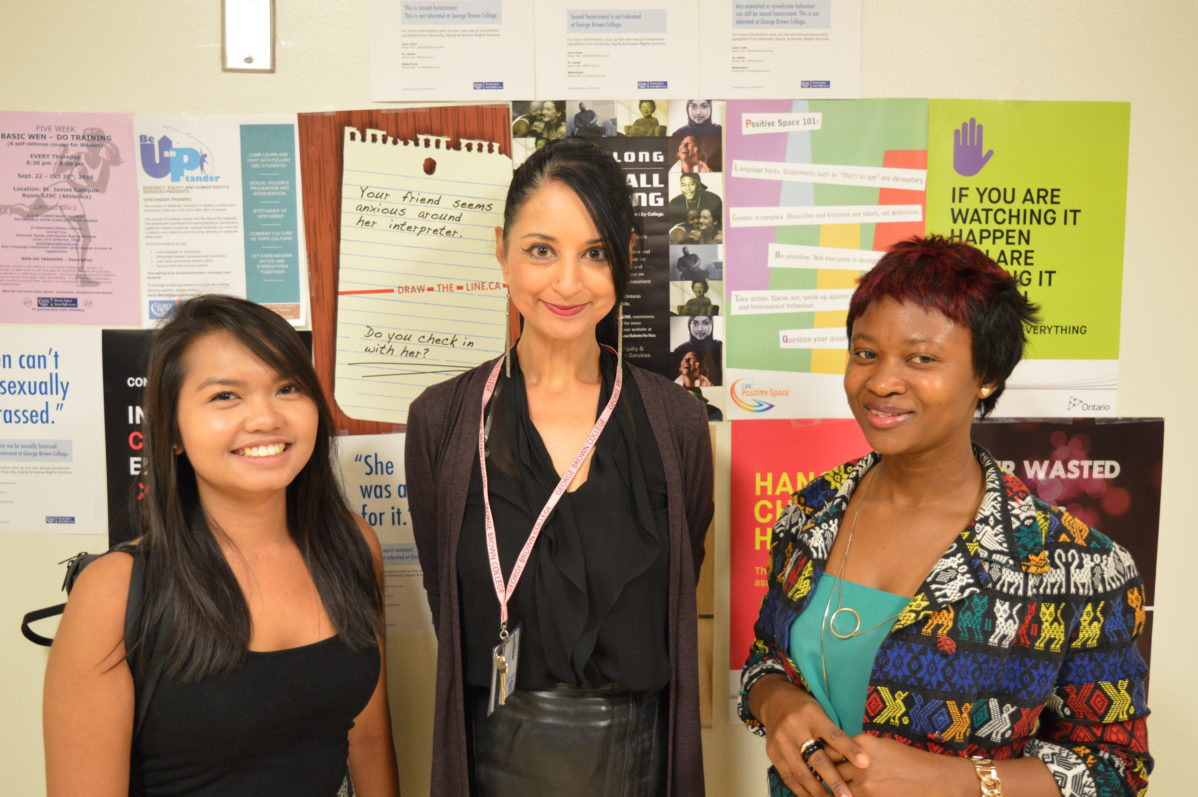Practical skills and changing understandings key to training philosophy
Challenging and changing society’s views on sexual violence is a daunting task, but with its peer-to-peer method, George Brown College believes it has the right approach with its “upstander” training workshops.
Presented by George Brown’s diversity, equity, and human rights services, upstander training is a workshop focused on sexual violence prevention and intervention. The free 90-minute session covers a variety of topics from myths and stereotypes about sexual violence to strategies on how to safely intervene.
The training gains its namesake from a crucial shift in how bystanders are thought of. According to Mandy Bonisteel, co-ordinator of George Brown’s assaulted women’s and children’s counsellor/advocate (AWCCA) program, the idea is if an individual remains silent and does nothing, they are perceived as being aligned with the person causing harm.
“We’re not going to end racism, sexism, homophobia, transphobia, ableism, and all those things unless people who see that happening say or do something, because that creates learning for everybody and this is a learning environment,” said Bonisteel.
While the program is assisted by staff such as Bonisteel and sexual violence response advisor Heidi Mehta, upstander training is built on peer-to-peer interaction, one where a team of student-trainers deliver a workshop of their own design.
Originally created by students in the housing division of Western University, the program has been adapted for George Brown’s diverse community. The student training team at George Brown placed more emphasis on an anti-oppression approach, incorporating ideas on privilege, power and social location.
Through the exploration of shared experiences, the workshop promotes a belief that this is an important conversation for students to have among themselves.
Katrina Krizmancic, a second-year student in the AWCCA program, and upstander team member finds the bottom-up approach empowering.
“We’re all coming into it together and experiencing college life together, and these are all questions that I think many of us as students have experienced,” said Krizmancic. “It’s a collective learning experience.”
Sessions are interactive experiences in learning and unlearning behaviours, featuring video, brainstorming and discussion. Mehta also attends in a community support role, should individuals require counselling or connection to a service while at the training.
Ramatu Kabia, a first year practical nursing student, believes that the culture of consent developed here is as necessary as oxygen itself. For her, being a part of the upstander team has been an eye-opening experience.
“Knowledge is power, information is key,” said Kabia. “I never knew a lot of my rights. I’ve been here 12 years, but I’ve always just been in my own community, continuing with my own practice of what I learned from my country.”
As Kabia points out, many students believe they’re powerless because they’re not wearing a security uniform. At its core, the lesson of upstander training is that nothing could be further from the truth.
“I think the magic of the upstander (training) is that what people might think are little things can really shift what’s happening in a situation,” said Mehta. “So by checking in with someone and seeing if everything’s okay, you may actually be stopping a sexual assault from happening.”
Each semester, students are hired to facilitate training through work-study positions. Students interested in joining the upstander team or attending a workshop can email Mehta at: heidi.mehta@georgebrown.ca.



